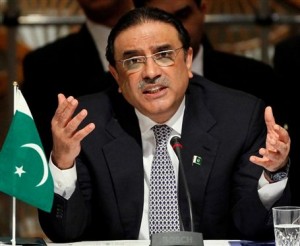You can access the list here:
List of Ebooks
The formatting of the list is not particularly fine, but it is searchable!
Now start reading!
This is a blog about everything, hence nothing. We are four. (We might grow.) This is our coffee table. We talk loud and laugh louder. We don't share anything except a common belief--Sab Bakwas Hai*. We are trying to discover what it 'means', if it—like everything else—even ‘means’ anything. *Translation: (All/Everything) is (Meaningless/Nonsense/Absurd/Waste).
 Guest post by ABDULLAH ZAIDI
Guest post by ABDULLAH ZAIDI
To be honest the shock, furor and disgust at Osama Bin Laden being found in an urban centre of Pakistan is, to me at least, a little exaggerated. I will admit, I was a little shocked as I walked into my office on Monday morning and my colleague said “marwa dia Osama ko aap ne.” My mind had accepted that the manhunt for Osama would go on forever or that Osama was already dead. But as news trickled in about his hideout and the initial surprise wore off, I thought, if I were Osama I would be exactly where he was.
Many experts have been lamenting, for a long time now, the self-destructive policy, employed by the Pakistani military establishment, of fighting a halfhearted war against terror. It has been explained in detail by Ahmed Rashid and Zahid Hussain, how Pakistan pursues a policy supporting friendly Islamist organizations and fighting unfriendly ones. This is so, because friendly ones were perceived to be in line with Pakistan specific objectives while the unfriendly ones had their own pan-Islamic and sectarian agendas. The policy comes from the age of Zia regime, during which several extremist organizations like Harkat-ul-Mujahedin, Hizb-ul-Mujahedin, Harkat-ul-Jihad-al-Islami emerged. Having mastered the art of covert war the military started using these organizations to stoke the insurgency in Kashmir. This also caused our military to look towards Afghanistan as strategic depth. Therefore, bleeding India by keeping the Kashmir insurgency alive and cobbling up a friendly regime in Afghanistan was the modus operandi of the GHQ for more than two decades after Zia. However, the greatest flaw in this policy, as many have pointed out, was the assumption that these friendly Islamist groups are controllable and that they could be ‘managed’ to achieve Pakistan specific objectives. This policy started crumbling when most of these groups went ahead with their own Sectarian and pan-Islamic agendas. For instance, the Harkat-ul-Mujahedin, which was involved both in Afghan Jihad and Kargil operation, was concerned less with the military’s specific objectives in Kashmir and more with pan-Islamic Jihad. Later it also came to be widely implicated in promoting a sectarian agenda in Pakistan in 2000 which alarmed the military. So the military triggered a rift in it and formed the Jaish-e-Muhammad which was considered more responsive to its specific objectives in Kashmir. But, any hopes that the military had harbored in Jaish-e-Muhammad were thwarted when the group also pursued an independent sectarian agenda against Shia minorities in cooperation with the Sipah-e-Sahaba Pakistan.
After 9/11, the ISI embraced a two-track policy of handing over Al-Qaeda leaders and supporting Taliban and other friendly organizations. This is why after the January 2002 ban on these organizations many of them were allowed to operate under different names. The reason for this distinction was the same assumption that these organizations have a different character and objectives compared to Al-Qaeda. It did not appear to anyone in the GHQ that these supposedly friendly organizations, rooted in the same ideology of radical Islam, could pursue their own independent pan-Islamic agendas or at least collude with pan-Islamic organizations like Al-Q. The December 2003 attack on Musharraf was a clear indication of collusion between local and foreign militant. Rashid has detailed in his book how many of these groups were to abandon the ISI because they saw their true calling as fighters for organizations like Al-Qaeda. The problem with this distinction of good-Taliban (read Haqqani network, LeT, Jaish-e-Muhammad etc.) and bad-Taliban (Al-Qaeda, TTP) is that it does not account for the fact that there is massive overlap in the membership of these organizations.
So this long history of cooperation between ISI and militant organizations only increases the probability of Osama being found here in Pakistan. It is very probable that one of ISI’s favored militant organizations had sheltered him with knowledge of the ISI or someone from the ISI. Even if we concede, although the world will not, that the Pakistani military establishment was not directly involved in sheltering OBL, corruption in the intelligence sector cannot be ruled out and any rogue section within intelligence sector may have helped arrange for Osama to stay in that mansion for quite some time. The decades old cooperation within intelligence agencies and militants is a world governed by rouges and radicals. There are many precedents which show that the ISI has been working on its own despite the orders it was given. For example, in 2003 Musharraf had ordered the ISI to shutdown the Kotli camp, which sheltered Jihadis, but it continued to operate. So if Osama was found here, it makes perfect sense. What is better than hiding under the wings of the spy agency which is supposedly in charge of locating you? In any case it is clear that our intelligence agencies have been playing with fire for a long time now and the people of Pakistan have been paying for it.
The inability to get this article published anywhere forced me to post it here.
 |
| Aadha Imad: Half of Faith |